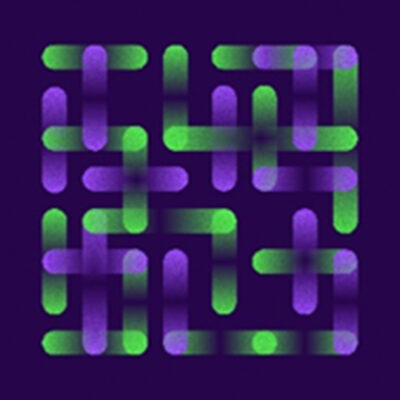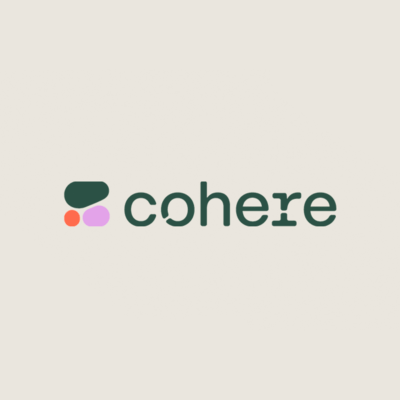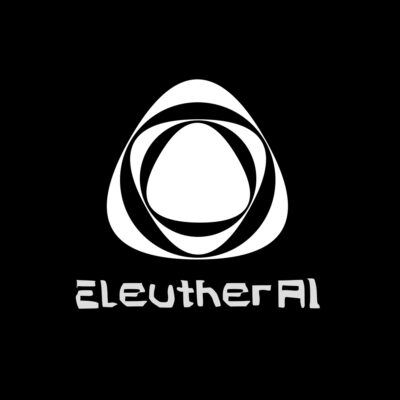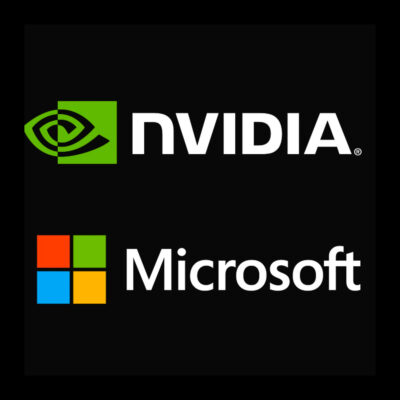Compare Models
-
OpenAI
Davinci (fine tuning) GPT-3
$0.12When fine-tuning a GPT model like Davinci, you are fine-tuning the GPT-3 base model (not the instruction-oriented variant of GPT-3). Fine-tuning involves taking the pre-trained base model and further training it on your specific dataset or task to enhance its performance. Fine-tuning allows OpenAI API customers to leverage the power of pre-trained GPT-3 language models, such as Davinci, while tailoring them to their specific needs (the fine-tuning process allows a model to specialize in a specific task or context, making it more efficient and effective for a particular use case, which can help to reduce costs and latency for high-volume tasks). You are also able to continue fine-tuning a fine-tuned model to add additional data without having to start from scratch.Davinci is the largest and most powerful variant of GPT-3. It’s the best choice for tasks requiring the most sophisticated language capabilities, but it also requires more processing power and time to generate results. Note: There are two fine-tuning costs to be aware of, a one-time training cost and a pay-as-you-go usage cost. -
OpenAI
Davinci Instruct model
$0.02Davinci is the most capable Instruct model and it can do any task the other models can (Ada, Babbage and Curie), often with higher quality. InstructGPT models are sibling models to the ChatGPT. They are built on GPT-3 models but made to be safer, more helpful, and more aligned to users’ needs using a technique called reinforcement learning from human feedback (RLHF). Instruct models are meant to generate text with a clear instruction, and they are not optimized for conversational chat. Instruct models are optimized to follow single-turn instructions (e.g., specifically designed to follow instructions provided in a prompt). Developers can use Instruct models for extracting knowledge, generating text, performing NLP tasks, automating tasks involving natural language, and translating languages. Instruct models make up facts less often than GPT-3 base models and show slight decreases in toxic output generation. Access is available through a request to OpenAI’s API. -
Cohere
Generate
$0.015Cohere is a Canadian startup that provides high-performance and secure LLMs for the enterprise. Their models work on public, private, or hybrid clouds.Cohere Generate can be used for tasks such as copywriting, named entity recognition, paraphrasing, and summarization. It can be particularly useful for automating time-consuming and repetitive copywriting tasks and re-wording text to suit a specific reader or context.Cohere Generate is available as an API that can be integrated into various libraries using Python, Node, or Go software development kits (SDKs).We have shown the price of the Cohere Generate Default version, but a Cohere Generate Custom model is available but is double the price (0.030 per 1/k tokens). However, custom models can lead to some of the best-performing NLP models for many tasks. -
OpenAI
GPT-3.5-turbo 16k
$0.004GPT-3.5-turbo 16k has the same capabilities as the standard gpt-3.5-turbo (4k model) but with 4 times the context but at twice the price. In general, a larger context window can be more powerful because it takes into account more information from the surrounding text, which can lead to better predictionsGPT-3.5-turbo was designed to provide better performance and is well-known as the model that, by default, powers ChatGPT. However, paying customers who subscribe to ChatGPT Plus can change the model to GPT-4 before you start a chat.GPT-3.5-turbo is optimized for conversational formats and is superior to GPT-3 models, and the performance of GPT-3.5-turbo is on par with Instruct Davinci-003. GPT-3.5-turbo was trained on a massive corpus of text data, including books, articles, and web pages from across the internet and is used for tasks like content and code generation, question answering, translation, and more. Access is available through a request to OpenAI’s API or through the web application (try for free). -
OpenAI
GPT-3.5-turbo 4k
$0.002GPT-3.5-turbo is an upgraded version of the GPT-3 model. It was designed to provide better performance and is well-known as the model that, by default, powers ChatGPT (however, paying customer who subscribe to ChatGPT Plus can change the model to GPT-4 before you start a chat).GPT-3.5-turbo is optimized for conversational formats and is superior to GPT-3 models, and the performance of GPT-3.5-turbo is on par with Instruct Davinci-003 (however is also ten times cheaper and has been seen to be three times faster). GPT-3.5-turbo was trained on a massive corpus of text data, including books, articles, and web pages from across the internet and is used for tasks like content and code generation, question answering, translation, and more. In some cases, GPT-3.5-turbo results can sometimes be too “chatty” or “creative”. Access is available through a request to OpenAI’s API or through the web application (try for free). -
OpenAI
GPT-4 32K context
$0.12GPT-4 is OpenAI’s new design that incorporates additional improvements and advancements, including being multimodal so it can take both text and image inputs. With broad general knowledge and domain expertise, GPT-4 can follow complex instructions in natural language and solve difficult problems with accuracy. GPT-4 has a more diverse range of training data, incorporating additional languages and sources beyond just English. This means that the model will be able to process and generate text in multiple languages and better understand the nuances and subtleties of different languages and dialects. This is the extended 32k token context-length model, which is separate to the 8k model (and is more expensive).
GPT-4 API access is now available.
Note: At the time of writing, ChatGPT Plus subscribers can access Chat GPT-4 by logging into the web application.
-
OpenAI
GPT-4 8K context
$0.06GPT-4 is OpenAI’s new design that incorporates additional improvements and advancements, including being multimodal so it can take both text and image inputs. With broad general knowledge and domain expertise, GPT-4 can follow complex instructions in natural language and solve difficult problems with accuracy. GPT-4 has a more diverse range of training data, incorporating additional languages and sources beyond just English. This means that the model will be able to process and generate text in multiple languages and better understand the nuances and subtleties of different languages and dialects. There are a few different GPT-4 models to choose from. The standard GPT-4 model offers 8k tokens for the context. GPT-4 API access is now available.
Note: For the ChatGPT web application, ChatGPT is powered by GPT-3.5 turbo by default. However, if you are a paying customer and subscribe to ChatGPT Plus, you can change the model to GPT-4 before you start a chat.
-
EleutherAI
GPT-J
FREEEleutherAI is a leading non-profit research institute focused on large-scale artificial intelligence research. EleutherAI has trained and released several LLMs and the codebases used to train them. GPT-J can be used for code generation, making a chat bot, story writing, language translation and searching. GPT-J learns an inner representation of the English language that can be used to extract features useful for downstream tasks. The model is best at what it was pretrained for, which is generating text from a prompt. EleutherAI has a web page where you can test to see how the GPT-J works, or you can run GPT-J on google colab, or use the Hugging Face Transformers library. -
EleutherAI
GPT-NeoX-20B
FREEEleutherAI has trained and released several LLMs and the codebases used to train them. EleutherAI is a leading non-profit research institute focused on large-scale artificial intelligence research. GPT-NeoX-20B is a 20 billion parameter autoregressive language model trained on the Pile using the GPT-NeoX library. Its architecture intentionally resembles that of GPT-3, and is almost identical to that of GPT-J- 6B. Its training dataset contains a multitude of English-language texts, reflecting the general-purpose nature of this model. It is a transformer-based language model and is English-language only, and thus cannot be used for translation or generating text in other languages. It is freely and openly available to the public through a permissive license. -
Microsoft, NVIDIA
MT-NLG
OTHERMT-NLG (Megatron-Turing Natural Language Generation) uses the architecture of the transformer-based Megatron to generate coherent and contextually relevant text for a range of tasks, including completion prediction, reading comprehension, commonsense reasoning, natural language inferences, and word sense disambiguation. MT-NLG is the successor to Microsoft Turing NLG 17B and NVIDIA Megatron-LM 8.3B. The MT-NLG model is three times larger than GPT-3 (530B vs 175B). Following the original Megatron work, NVIDIA and Microsoft trained the model on over 4,000 GPUs. NVIDIA has announced an Early Access program for its managed API service to the MT-NLG model for organizations and researchers. -
RedPajama
RedPajama-INCITE-7B-Instruct
FREEThe RedPajama project aims to create a set of leading open source models. RedPajama-INCITE-7B-Instruct was developed by Together and leaders from the open source AI community. RedPajama-INCITE-7B-Instruct model represents the top-performing open source entry on the HELM benchmarks, surpassing other cutting-edge open models like LLaMA-7B, Falcon-7B, and MPT-7B. The instruct-tuned model is designed for versatility and shines when tasked with few-shot performance.The Instruct, Chat, Base Model, and ten interim checkpoints are now available on HuggingFace, and all the RedPajama LLMs come with commercial licenses under Apache 2.0.Play with the RedPajama chat model version here – https://lnkd.in/g3npSEbg -
Cohere
Summarize
$0.015Cohere is a Canadian startup that provides high-performance and secure LLMs for the enterprise. Their models work on public, private, or hybrid clouds and is available as an API that can be integrated into various libraries using Python, Node, or Go software development kits (SDKs).Cohere Summarize generates a succinct version of a provided text. This summary relays the most important messages of the text, and a user can configure the results with a variety of parameters to support unique use cases. It can instantly encapsulate the key points of a document and provides text summarization capabilities at scale.








